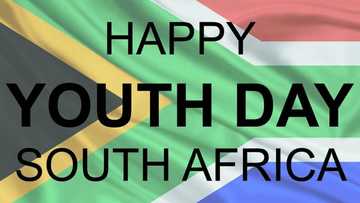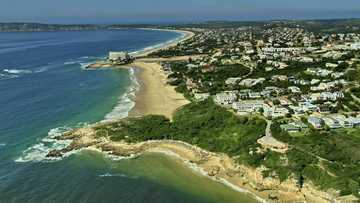World Tourism Day: University of Pretoria Expert Believes Tourism Can Drive Lasting Change In SA
By Professor Elizabeth du Preez, Associate Professor in the Department of Marketing Management at the University of Pretoria.
Mark Twain once said that travel is fatal to prejudice and that no broad, wholesome, charitable views of men can be acquired without it.
It's for this reason, among others, that I will join governments, tourism organisations and businesses around the world in celebrating World Tourism Day on 27 September.

Source: UGC
Each year, the United Nations World Tourism Organisation (UNWTO) selects a theme for the celebration that reflects current trends, challenges, or opportunities in the tourism industry.
This year's theme, Tourism and Peace, speaks to Sustainable Development Goal 16, which focuses on promoting inclusive, just, and peaceful societies.
PAY ATTENTION: Briefly News is now on YouTube! Check out our interviews on Briefly TV Life now!
We are urged to reflect on tourism's influence on critical issues such as human rights, social equity, cultural preservation, community empowerment and access to justice. Otherwise, as the international Center for Responsible Travel puts it, "tourism risks perpetuating inequality and conflict rather than fostering harmony and development."
Viewing tourism within its broader context creates the platform to use tourism as a vehicle for positive peace – a more lasting peace built on investing in sustainable developments and societal attitudes.
Embracing South African heritage
The South African government has long recognised the importance of tourism and embraces the annual World Tourism Day celebrations as part of National Tourism Month.
For 2024, the global theme has been interpreted locally as Tourism and Peace – 30 Years of Connecting People to Places and Cultures. What an apt theme, considering that September is also National Heritage Month and Heritage Day is celebrated only three days before World Tourism Day.
Travel is the best teacher, and I believe it can play a significant role in fostering peace in South Africa, affording opportunities for cultural exchange and reconciliation across our diverse societal landscape.
Yet people's preferred tourism destinations and travel behaviour are considered to be historically loaded constructs, impacted by images and traces from the past.
While discriminatory policies may have been removed in South Africa, some symbolic boundaries remain within the tourism landscape. Local destinations may still be regarded as inhospitable or exclusive to certain groups.
These perceptions are often carried over from generation to generation, and this travel consciousness continues to create territorial tourism spaces. Population groups may refrain from travelling beyond standard travel movements and keep to destinations that feel culturally 'close' or familiar.
What prevails are stereotypical views on the travel choices of different racial and ethnic groups.
South Africa's changing habits
We explored these phenomena in a recent doctoral study conducted at UP. Domestic tourism patterns in post-apartheid South Africa were explored to determine whether destination preferences have changed, and whether these changes are a function of race, ethnicity or socio-economic status.
Results indicate that, although race and economic status remain significant, ethnicity is the primary determinant of change.
The study also highlights the importance of considering age, education and geographic location to further segment within ethnic groups. For example, while destination familiarity and cultural distance influence preferences, the educated, income-earning youth market within certain ethnic groups are most likely to transition to new tourism destinations.
Furthermore, ethnic groups close to, for example, national parks display the same interest in these destinations as the stereotypical traditional market. This can be ascribed to indigenous knowledge of these areas that are often underrepresented in tourism and conservation issues.
At the same time, the youth market from other ethnic groups showed a decline in interest. Individuals' levels of ethnic and cultural affinity play an important role in the notion of moving beyond cultural boundaries.
Moving forward
This year, let us consider the links between people and places that have evolved since removing travel barriers.
The more South Africans venture to unfamiliar places, the greater our potential to create a diversified domestic tourism landscape.
At the same time, we need an industry willing to explore and meet the needs of previously neglected travel groups by offering innovative experiences.
Travel experience positively influences interest in human endeavours, sharing knowledge, and relationship-building. We should forfeit preconceived ideas about the relevance of travel motivations and destination choice among different population groups.
As South Africans gain confidence and familiarity with previously unexplored spaces and places, this inclusivity and equality will pave the way toward positive peace through tourism.
- Professor Elizabeth du Preez is an Associate Professor in the Department of Marketing Management at the University of Pretoria.
PAY ATTENTION: Сheck out news that is picked exactly for YOU - click on “Recommended for you” and enjoy!
Source: Briefly News





